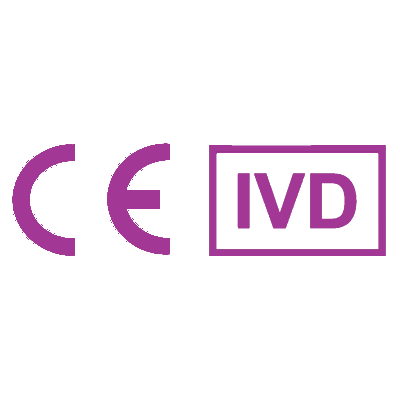Gestalt’s COO and Chief Strategy Officer, Lisa-Jean Clifford, elected as Secretary to The Association for Pathology Informatics Governing Council
Lisa-Jean Clifford’s Affective Dedication to Advance Pathology Informatics Through Service in Key Influential Non-Profit Organizations is Commendable
December 21, 2022 – Spokane, WA.
Gestalt Diagnostics an industry-leading digital pathology solutions provider has the distinct honor to congratulate, its COO and Chief Strategy Officer, Lisa-Jean Clifford, on her election to the position of Secretary on the governing council for The Association for Pathology Informatics.
Ms. Clifford’s ongoing commitment of her time and energy to advancing the digital pathology industry is considerable. In addition to having the privilege to serve alongside exceptional pathologists, informaticists, and leaders in healthcare she is truly dedicated to ensuring the continued collaboration and passion that will help our industry in its technological evolution of advancing patient care.
For more than 2 decades, Lisa-Jean Clifford has been a noteworthy leader in the high-tech healthcare solutions space. Her passion for making a positive impact on the lives of patients through technology can be traced back to her tenure at McKesson, IDX (now GE Healthcare) and to Psyche Systems, an LIS solution and services provider, where she served as CEO for eleven years.
Recognized as an industry expert, she actively participates in numerous boards including the Association of Pathology Informatics and MLO’s Editorial Advisory Board. She is widely published in many top laboratory publications and noteworthy news sources, such as Forbes, CAPToday, Medical Laboratory Observer, and Health Data Management.
Lisa-Jean’s success can be attributed to her perseverance, integrity, her high-regard for ethics, and her desire to continue to learn, grow, and move technology solutions forward for healthcare. Her collaboration with industry partners, customers, colleagues, and competitors combined with her commitment to exceptional customer relationships is what distinguishes her drive to foster a win-win for the healthcare industry as a whole.
Discussing her new appointment, Clifford said, “I am incredibly proud of this organization’s collaborative work and the transformation for our industry. The continual growth of Pathology Informatics and the commitment of the API to bring key resources, critical standardization, and effective lobbying is a powerful validation of the true spirit of those in our industry who seek to partner on these initiatives for the distinct purpose of advancing healthcare.
Clifford continued, "I'm excited about the future and see meaningful opportunities to realize additional synergies and to continue to provide pathologists with high-quality, comprehensive offerings to support wide-ranging educational efforts, provide mentorship, and continuously improve laboratory information technology through the Association for Pathology Informatics."
“We are excited to celebrate Lisa-Jean’s accomplishments and provide the support and encouragement for her to continue to shape the future of our industry,” says Dan Roark, CEO of Gestalt Diagnostics.
Association for Pathology Informatics
The Mission of the Association for Pathology Informatics is to promote the field of pathology informatics as an academic and a clinical subspecialty of pathology. To learn more about API’s mission, visit www.pathologyinformatics.com.
Gestalt Diagnostics, Inc.
Gestalt Diagnostics transforms pathology through an intelligent, configurable, vendor-neutral, and AI-driven digital workflow that provides true interoperability enabling pathologists to diagnose* diseases faster and more efficiently. Our PathFlow solution is a cloud-based digital pathology enterprise platform that can easily be customized based on your specific preferences. Our platform consists of professional, education, and research modules for ease of mixing and matching the digital needs of your facility in a single solution, freeing pathologists from tedious, repetitive, and manual tasks allowing them to focus on their expertise, providing invaluable expertise where it matters most. Stay connected with Gestalt and follow Gestalt on LinkedIn
and @Gestalt122
on Twitter.
*Research use only unless following CAP guidelines for LDT.
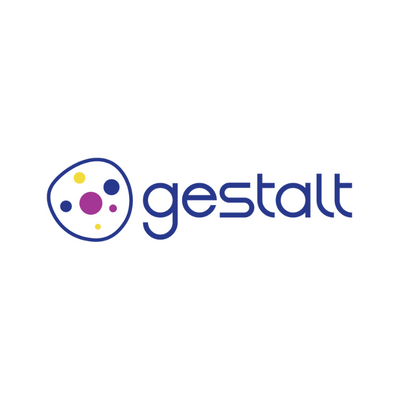
Spokane, Washington, April 28, 2025 – Gestalt, a leading innovator in AI-powered digital pathology solutions, announced the completion of a $7.5 million Series A financing. The round was led by Cowles Ventures, TVF Funds, Inland Imaging Investments, KickStart Funds, and prominent angel investors from the Pacific Northwest. Gestalt’s PathFlow® platform is used by leading healthcare, academic medical centers, and research organizations. Customers implement PathFlow as their preferred solution because it integrates seamlessly into their existing laboratory information systems, enabling faster, more accurate diagnoses and improving access to expert consultation, education, and research—regardless of location. "PathFlow is transforming pathology by leveraging robust digital workflows and AI algorithms to support scoring of key biomarkers. This enables organizations to accurately match patients to known therapies and generate rich datasets for research and new drug development," said Dan Roark, CEO, Gestalt. "Our technology is designed to improve patient outcomes by enabling faster, more accurate diagnoses and broadening access to clinical expertise." This new funding will facilitate broader market adoption and increased profitability. The capital will be used to expand the company’s customer base, enhance AI capabilities, and pursue FDA clearance. This comes at a critical moment, with rising cancer rates and a declining number of practicing pathologists intensifying the need for scalable, digital-first diagnostic solutions. “We are incredibly grateful for the continued support from our investors,” Roark added. “This funding allows us to expand on the solid foundation we’ve built. We’ve already streamlined how pathologists navigate fragmented systems by creating PathFlow, a unified platform for viewing pathology cases digitally and collaborating with leading experts in real-time without the need to ship specimens. Now, we’ll accelerate innovation and scale our reach to meet the growing demands of modern pathology.” Gestalt is at the forefront of a critical shift in diagnostic medicine, helping transform pathology from a manual, microscope-based process to a scalable digital solution leveraging artificial intelligence tools — like the digital transitions already seen in radiology and cardiology. The company’s platform not only improves diagnostic speed and precision which is critical for cancer patients who can wait for days to weeks or more for a diagnosis, but also unlocks AI-powered insights that enable: Biomarker scoring to support the optimization of patient-therapy matching, Image and data analysis for disease progression studies, And the interoperability that enables pathologists access to valuable aides and insights that streamline their workflows, highlight areas of positivity and reduce missed diagnoses. With this Series A funding, Gestalt remains committed to expanding its impact through the deployment of its’ PathFlow software in healthcare, making high-quality, scalable pathology solutions more accessible to clinicians and researchers worldwide. About Gestalt Gestalt Diagnostics is a Spokane-based company dedicated to revolutionizing pathology through digital solutions. Founded in 2017, Gestalt provides advanced technology, proven digital expertise, and artificial intelligence to enable pathologists to diagnose diseases faster and more efficiently. The company's PathFlow platform is at the forefront of digital pathology innovation, offering significant improvements in diagnostic accuracy and workflow efficiency. To learn more, visit www.gestaltdiagnostics.com and follow @Gestalt on LinkedIn
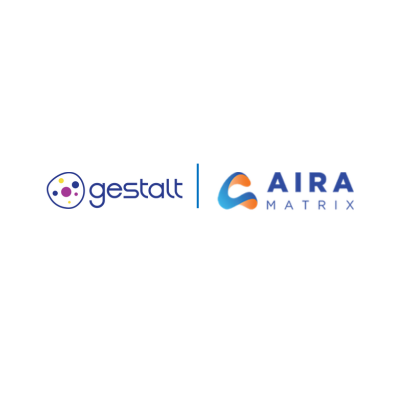
March 21, 2025 – Mumbai, India and Spokane, Washington – AIRA Matrix, a leading innovator in AI-driven QC solutions, and Gestalt, an industry leader in IMS and digital pathology, have formed a strategic partnership to bring AIRA Matrix’s advanced AI solution, AIRAQC, to Gestalt's PathFlow. This collaboration marks a significant step toward enhancing diagnostic precision and efficiency in laboratories worldwide. AIRAQC, powered by cutting-edge artificial intelligence, streamlines quality control processes, enabling faster and more accurate analysis in pathology workflows. By integrating AIRAQC with Gestalt's workflows, pathologists will gain access to a seamless, AI-enhanced experience designed to optimize diagnostic decision-making. "We're thrilled to partner with Gestalt to expand the reach of AIRAQC and deliver transformative AI capabilities to pathology labs," said Marco Comianos, Head of Commercial Operations - US., AIRA Matrix. "This collaboration is a testament to our shared commitment to advancing pathology through innovation." “The partnership between AIRA Matrix and Gestalt represents a continued effort to drive progress in pathology by leveraging technology to meet evolving healthcare needs. Together, our companies aim to empower laboratories with state-of-the-art tools that improve diagnostic accuracy, quality and meaningful metrics from the start of the diagnostic process” says Lisa-Jean Clifford, Gestalt COO & Chief Strategy Officer. About AIRA Matrix: Delivers artificial intelligence solutions for healthcare and life sciences applications. Our innovative products and services drive efficiency, enhance diagnostic accuracy, and provide data-driven insights from digitally scanned images. Our comprehensive AI-driven suite for drug discovery and development, streamlines pre-analytical quality control, facilitates tissue triage, and optimizes safety and efficacy assessments, accelerating breakthrough discoveries. Our healthcare portfolio offers diagnostic, prognostic, and predictive tools that facilitate risk stratification and enable personalized therapy planning, thus improving treatment outcomes., visit www.airamatrix.com. About Gestalt Diagnostics: Gestalt transforms pathology through an intelligent, configurable, vendor-neutral, and AI-driven digital workflow that provides true interoperability enabling pathologists to diagnose* diseases faster and more efficiently. Our PathFlow® solution consists of professional, education, and research modules for ease of mixing and matching the digital needs of your facility in a single solution, freeing pathologists from tedious, repetitive, and manual tasks allowing them to focus on their expertise, providing invaluable experience where it matters most. *Following the LDT process in the US. It is under CE-IVD marking for use in Europe.
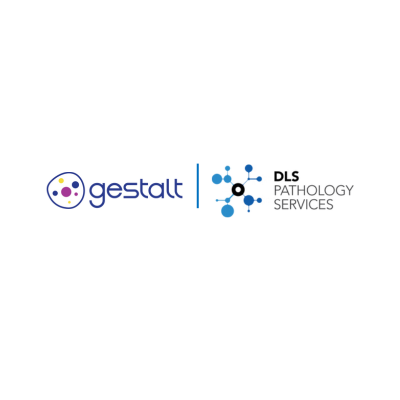
March 21, 2025 – Spokane, Washington – Gestalt, a leader in AI driven digital pathology solutions, and DLS Pathology Services, a reseller and consultation company providing expert direction on digital adoption and services are excited to announce a global reseller partnership. This collaboration brings Gestalt’s acclaimed digital platform directly to pathologists and healthcare entities in Australia and other territories. This reseller agreement continues Gestalt’s expansion into other countries through the locally focused expertise and experience of DLS Pathology Services. In this arrangement, DLS will be providing the sales and first line support of Gestalt’s digital pathology capabilities, ensuring that pathologists have the ability to leverage their consultations for pathology as a service provider and support. "We are excited to join forces with DLS Pathology Services to bring our industry leading digital pathology solutions to a wider global audience," said Lisa-Jean Clifford, COO & Chief Strategy Officer, Gestalt. "This partnership enables us to combine our innovative platform with DLS's local expertise, ensuring pathologists in Australia and beyond have the tools and support they need to provide exceptional diagnostic services.” “Gestalt provides the ideal platform for providing digital pathology services. Its ability to host and stream DICOM images at low-cost, with an intuitive interface for pathologists, helps us service clients at any scale”, says Dr. Jeremy Parry, Director, DLS Pathology Services. “I have been in the digital pathology business for more than a decade and tried pretty much all the Cloud platforms out there. With its speed, user-friendly interface and innovative use of DICOM, Gestalt is the best of the lot.” For more information about this partnership and the respective solutions, please visit Gestalt at booth #934 during USCAP March 23-26, 2025. About Gestalt Gestalt Diagnostics transforms pathology through an intelligent, configurable, vendor-neutral, and AI-driven digital workflow that provides true interoperability enabling pathologists to diagnose* diseases faster and more efficiently. Our PathFlow solution consists of professional, education, and research modules for ease of mixing and matching the digital needs of your facility in a single solution, freeing pathologists from tedious, repetitive, and manual tasks, allowing them to focus on their expertise – providing invaluable experience where it matters most. About DLS Pathology Services Our mission is to support and develop local pathology services, no matter what the budget or location. Recent progress in digital technologies means that no pathology service should be limited by remote geographical location, lack of local support, limited budgets or the shortcomings of traditional glass-slide (analogue) pathology workflows. At DLS Pathology Services, we believe that every medical service, with the appropriate support, can grow and flourish to support the needs of its local community. DLS stands for Deep Learning Solutions which underlines the Company's aim of developing and utilizing deep-learning and other machine applications as much as possible for the benefit of clients. To learn more, visit www.dlspath.com . *Following the LDT process in the US. It is under CE-IVD marking for use in Europe.
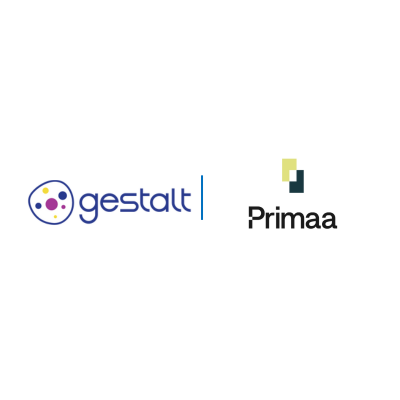
March 19, 2025 – Spokane, Washington and Paris, France – Gestalt, a leader in digital pathology innovation, and Primaa , a MedTech pioneer specializing in AI-based dermatopathology solutions, are thrilled to announce a strategic partnership. This collaboration brings Primaa’s cutting-edge AI technology for skin cancer diagnosis directly into Gestalt’s acclaimed PathFlow platform. Together, they aim to create seamless workflows for pathologists while upholding the highest levels of diagnostic precision and patient safety. Gestalt’s PathFlow is known for its versatility, supporting primary diagnoses*, education, resident training, and research workflows. By integrating Primaa’s advanced AI algorithms, the platform now empowers pathologists with enhanced tools for detecting and quantifying tumor biomarkers in skin tissues. This integration allows pathologists to utilize AI-driven algorithms that detect critical biomarkers in skin lesions. Through the combined offering can automatically identifiy lesion types—including melanoma, squamous cell carcinoma, and basal cell carcinoma—and provides detailed measurements of lesion dimensions and margins. The solution also detects automatically all perineural invasions and all mitosis objects in the melanoma. Additionally, the system prioritizes high-risk cases for immediate review, ensuring timely and accurate diagnosis. "Partnering with Primaa to integrate their skin AI technology into PathFlow underscores our dedication to providing pathologists with state-of-the-art tools,” said Lisa-Jean Clifford, COO & Chief Strategy Officer of Gestalt. “This partnership represents a pivotal advancement in enhancing workflow efficiency and delivering superior patient care related to skin cancer." Fanny Sockeel, CEO at Primaa, added, “Our collaboration with Gestalt, a leader in digital pathology, marks a significant step toward integrating AI seamlessly into pathologists’ workflows. Together, we aim to empower pathologists with cutting-edge technology that supports faster, more precise diagnoses - ultimately improving patient outcomes.” For more information about this partnership and the respective solutions, please visit Gestalt at booth #934 and Primaa at booth #820 during USCAP March 23-26, 2025. About Gestalt: Gestalt Diagnostics transforms pathology through an intelligent, configurable, vendor-neutral, and AI-driven digital workflow that provides true interoperability enabling pathologists to diagnose* diseases faster and more efficiently. Our PathFlow solution consists of professional, education, and research modules for ease of mixing and matching the digital needs of your facility in a single solution, freeing pathologists from tedious, repetitive, and manual tasks, allowing them to focus on their expertise – providing invaluable experience where it matters most. About Primaa: Founded in 2018, Primaa is a pioneering MedTech company dedicated to transforming cancer diagnostics through Artificial Intelligence. Our advanced platform leverages cutting-edge image analysis and deep learning to enhance the accuracy and efficiency of biomarkers detection for major cancers. By empowering pathologists with automated and precise insights, Primaa is helping to drive more personalized treatment strategies and ultimately improving patient outcomes. www.primaalab.com *Following the LDT process in the US. It is under CE-IVD marking for use in Europe.

Dear Clients, Partners, and Friends, As we close out 2024, I want to take a moment to reflect on the incredible milestones we’ve achieved together. At Gestalt Diagnostics, we remain committed to advancing digital pathology and supporting our clients in delivering the highest level of patient care. This year has been a remarkable journey, and I’m proud to share some highlights with you. Innovations and Product Enhancements This year, we introduced the PathFlow® AI Algorithm Evaluator , a tool enabling labs to test and integrate multiple AI algorithms seamlessly into workflows, driving precision and efficiency. We also expanded our Digital Pathology Education Module to include proficiency testing, credentialing, and management tools, empowering professionals with critical resources for growth. Thought Leadership and Industry Contributions Our team shared valuable insights through leading journals and platforms: Published in Medical Laboratory Observer on preparing labs for automation with digital pathology and AI . Shared findings on biomarkers in prostate cancer diagnosis and digital pathology adoption in MLO. Hosted engaging discussions like the Digital Pathology Today Podcast: A Fresh Start for Pathology and a Q&A on enhancing clinical labs through advanced data analytics. Strategic Partnerships and Collaborations We strengthened our partnerships globally, adding several AI integrations into PathFlow®. Notably, we were selected by Optum (Change Healthcare) as their digital pathology partner, complementing their Enterprise Imaging Suite. We also expanded into Africa with DataPathology , marking a key step in our international growth. Recognition and Advisory Excellence This year, we welcomed Dr. J. Mark Tuthill to our Strategic Advisory Board, whose expertise has already brought immense value to our mission. Our leadership team also took on influential roles, with elections as President-Elect of the API and as Co-Chairs of DICOM Working Group 26, further contributing to global pathology standards. Global Impact and Market Growth Gestalt celebrated substantial growth, increasing our customer base and revenue while earning accolades for innovation and market expansion. These achievements reflect our dedication to pushing the boundaries of digital pathology and delivering meaningful results for labs worldwide. As we step into 2025, I am filled with excitement and gratitude. Thank you for your trust, collaboration, and commitment to advancing pathology alongside us. Together, we are shaping the future of this vital field. Wishing you success and innovation in the year ahead,
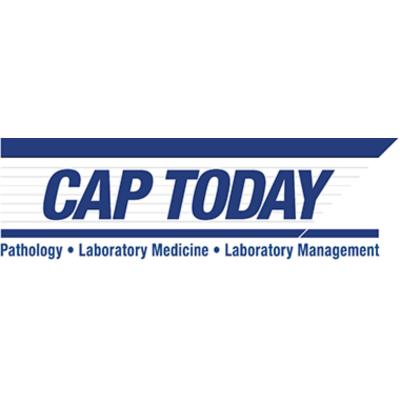
Featured in CAP TODAY December 2024—Digital pathology in 2024—what’s the sentiment, the pace, the holdup, the worry? Five people spoke online with CAP TODAY publisher Bob McGonnagle on Oct. 9 about the state of play as the end of the year neared. “It’s an ongoing conversation and foregone conclusion that laboratories will be going digital,” said Lisa-Jean Clifford, president-elect of the Association for Pathology Informatics.
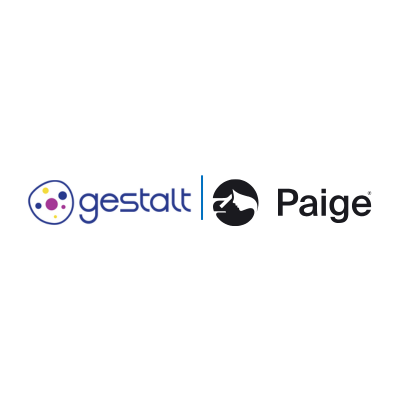
October 31, 2024 – Spokane, Washington and New York, New York – Gestalt, a leader in digital pathology solutions, and Paige, the leader in next-generation AI technology for pathology, are excited to announce a strategic partnership to integrate Paige’s advanced AI applications within Gestalt’s award-winning PathFlow® solution. This collaboration aims to streamline the delivery of integrated workflows, optimizing the pathologist’s experience while ensuring patient accuracy and safety by working in a single environment. Gestalt’s PathFlow is widely recognized for its robust capabilities in primary diagnosis, education, resident training, and research workflows. By incorporating Paige’s cutting-edge algorithms, the PathFlow solution will now offer an even broader range of tools to support pathologists in delivering precise and efficient diagnoses. All of Paige’s AI applications will be made available in PathFlow, enabling both current and new users to seamlessly access AI-powered diagnostic capabilities. This integration supports more efficient case reviews, accelerates diagnostic timelines, and promotes a comprehensive approach to cancer detection. Key Highlights of the Partnership: Enhanced Diagnostic Confidence: The integration of Paige’s AI applications will provide pathologists with powerful tools to improve diagnostic confidence and patient outcomes. Streamlined Workflows: The combined technologies will ensure seamless workflows, reducing the time and effort required for pathologists to reach diagnoses. Comprehensive Support: PathFlow’s expanded algorithm library will cater to a wide range of use cases, benefiting both current and future customers. Paige’s availability through PathFlow’s platform will allow easy access to Paige AI solutions for any Gestalt user. “By partnering with Paige to include their AI applications in PathFlow, we are reinforcing our commitment to providing pathologists with the best tools available,” said Lisa-Jean Clifford, COO & Chief Strategy Officer of Gestalt. “This partnership underscores our dedication to enhancing the pathologist’s experience and ensuring the highest standards of patient care.” “Leveraging Paige's AI-powered applications, PathFlow users can experience an enhanced workflow that supports efficient case review, accelerates time to diagnosis, and allows for a more comprehensive approach to cancer detection, enabling pathologists to focus on what matters most—delivering precise and actionable insights for patient care,” said Peter Hamilton, General Manager for Diagnostics at Paige. For more information about this partnership and the respective solutions, please visit Gestalt at booth #107 and Paige at booth #113 during the Pathology Visions Conference November 3-5, 2024. About Gestalt Gestalt Diagnostics transforms pathology through an intelligent, configurable, vendor-neutral, and AI-driven digital workflow that provides true interoperability enabling pathologists to diagnose* diseases faster and more efficiently. Our PathFlow solution consists of professional, education, and research modules for ease of mixing and matching the digital needs of your facility in a single solution, freeing pathologists from tedious, repetitive, and manual tasks, allowing them to focus on their expertise – providing invaluable experience where it matters most. To learn more, visit www.gestaltdiagnostics.com and follow @Gestalt on LinkedIn About Paige Paige is pushing the boundaries of AI to solve cancer’s most critical issues, revolutionizing cancer care with next-generation technology. By leveraging exclusive access to millions of digitized pathology slides, clinical reports, and genomic data, Paige gains a holistic understanding of cancer, encompassing diverse factors such as gender, race, ethnicity, and geographical regions. This comprehensive data enables Paige to create advanced AI solutions that redefine cancer detection, diagnosis, and treatment. With a unique, intricate understanding of tissue, Paige sets new standards in precision diagnostics, earning the distinction of being the first FDA-approved AI application in pathology. Paige has also developed the first million-slide foundation model for cancer, continuing to lead the way in uncovering novel insights and transforming them into life-changing products. For more information, visit www.paige.ai. *Research use only unless following CAP guidelines for LDT. CE-IVD certified for use in Europe.

September 16, 2024 – Spokane, Washington – Gestalt, a leader in AI-driven digital pathology solutions, is excited to announce its international expansion with the onboarding of its first client in Africa, DataPathology. This partnership marks a significant milestone as Gestalt continues to extend its global footprint, leveraging its innovative PathFlow digital solution with the new PathCloud platform to provide streamlined cloud-based digital access. DataPathology, a pioneering MedTech startup, operates five laboratories across Morocco and Djibouti. This collaboration aims to create a robust ecosystem that addresses two critical challenges in North Africa: the severe shortage of anatomic pathologists and the accessibility to specialized medical expertise. Addressing the Pathologist Shortage Africa faces a daunting shortage of pathologists, with an estimated ratio of 1 pathologist per 500,000 people. Given the continent’s population of approximately 1.2 billion, this translates to around 2,400 pathologists. In stark contrast, the United States boasts about 22,000 pathologists, resulting in a ratio of 1 pathologist per 15,000 people. This disparity underscores the urgent need for innovative solutions to bridge the gap in medical diagnostics and care. Enhancing Accessibility to Medical Expertise Through the integration of Gestalt’s PathCloud platform and the 3DHistech and Roches scanners, DataPathology will be able to connect its laboratories seamlessly, facilitating the rapid and accurate diagnosis of pathological samples. This technological advancement not only enhances the efficiency of diagnostic processes but also ensures that patients in remote and underserved regions have access to high-quality medical expertise. A Vision for the Future “We are excited to partner with DataPathology and bring our leading-edge technology to Africa,” said Lisa-Jean Clifford, COO & Chief Strategy Officer of Gestalt. “This collaboration is a testament to our commitment to improving healthcare accessibility and addressing critical shortages in medical expertise. Together, we aim to revolutionize the field of pathology and make a significant impact on patient care in North Africa.” DataPathology’s co-founder, Dr. Hicham El Attar, added, “Our partnership with Gestalt is a game-changer for pathology services in Morocco and Djibouti. By leveraging advanced digital pathology solutions, we can provide faster, more accurate diagnoses, ultimately improving patient outcomes and saving lives.” About DataPathology Founded in 2020, DataPathology is a MedTech startup specializing in pathology diagnostics. With a network of laboratories across Morocco and Djibouti, the company leverages artificial intelligence and digital technology to provide quick and accurate pathological diagnoses, addressing critical healthcare challenges in Africa. Gestalt Diagnostics, Inc. Gestalt Diagnostics transforms pathology through an intelligent, configurable, vendor-neutral, and AI-driven digital workflow that provides true interoperability enabling pathologists to diagnose diseases faster and more efficiently. Our PathFlow solution is a cloud-based digital pathology enterprise platform that can easily be customized based on your specific preferences. Our platform consists of professional, education, and research modules for ease of mixing and matching the digital needs of your facility in a single solution, freeing pathologists from tedious, repetitive, and manual tasks allowing them to focus on their expertise, providing invaluable expertise where it matters most. *Research use only unless following CAP guidelines for LDT. CE-IVD certified for use in Europe.


